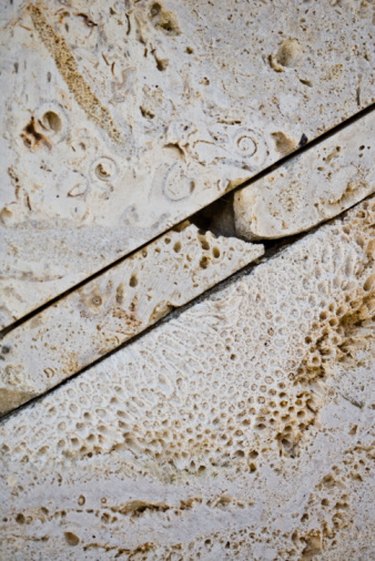Things You'll Need
TSP cleanser
Rubber gloves
Masonry sealer
Medium-nap paint roller

If you want to add color to limestone, a coat of bright paint will do the trick. Limestone is not as porous as brick, stucco or other masonry; but it does require some special prep work before painting. If you don't prep limestone, the paint will take several extra coats, and it may dry with an uneven sheen. The prep work takes only a couple of hours if you follow the right steps.
Step 1
Wash the surface with a trisodium phosphate cleanser (TSP). TSP cleaning solutions remove dirt and grime from craggy limestone surfaces better than basic soap and water. Wear gloves when working with TSP, as it can irritate the skin.
Video of the Day
Step 2
Wait for the surface to air dry. Towel-drying leaves behind unwanted cloth fibers.
Step 3
Apply masonry sealer with a medium-nap paint roller. Masonry sealer goes on white and acts as a multipurpose primer for limestone. Even if the limestone was previously sealed, a fresh coat will ensure a fresh, new seal. Without proper sealing, moisture can get underneath the paint, causing it to bubble or peel.
Step 4
Wait for the masonry sealer to dry. Apply a second coat if you notice any bare patches. Once the limestone is fully covered in sealant, it is ready to accept coats of paint. Just make sure you use an elastomeric latex paint, as these work best on treated limestone.
Video of the Day